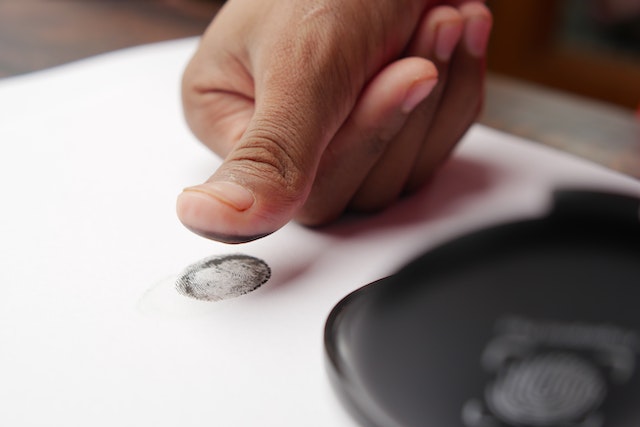If you’re looking for a fast, easy way to find out about someone’s past, you might have heard about fingerprint-based background checks. However, you might need to learn how they work. Several factors can affect how these searches work.
The applicant’s prints are compared to those in a database to conduct a fingerprint-based background check. Fingerprints were once obtained by pressing inked fingers onto a fingerprint card. It was then necessary to send that card to a specialist who would painstakingly compare it to fingerprints in the database. It may take weeks to complete the process. Fortunately, most fingerprints can now be digitally recorded by a scanner. This is also significantly quicker and more accurate than the previous method. So what happens when you get fingerprinted for a job? Your applicants will visit a kiosk to have their prints scanned if fingerprinting is part of your background screening program. These prints are then electronically sent to the FBI. Results are frequently provided in under 24 hours.
This Criminal History Record Information (CHRI), which may include arrests, records of federal employment, military service, naturalization, or none of the above, will be generated if there is a match in the national system and will serve as the basis for the creation of a “rap sheet.”
Contents
Reconciliation of The Rap Sheet
A reconciliation of the rap sheet is the following action if a rap sheet is returned. In this review, searches of federal, state, county, and/or police records and searches for any missing data will be conducted. An adjudication, or decision, can be made once the data has been collected. As a result, the employer will decide whether the applicant is disqualified due to the offense. Depending on the company policy, the employer or a background-checking business can conduct this.
Ink-and-roll
Ink-and-roll fingerprint-based checks have limitations, and some states require a different process for fingerprinting. Fingerprint-based reviews take weeks and are only sometimes as accurate as name-based checks. Name-based background checks require only a person’s name and date of birth and are often faster.
Fingerprint background checks require the candidate’s cooperation. Generally, the candidate is asked to provide their fingerprints at the time of employment application. After giving the fingerprints, the applicant then visits the local police department. The police department will use the fingerprint scan to access the applicant’s criminal records and forward the information to the vetting organization. This method has been used for decades, but it is essential to understand your rights when conducting a fingerprint background check.
Fingerprint-based background checks use ink-and-roll fingerprinting to determine a person’s criminal history. Fingerprint-based background checks are performed by State Identification Bureaus and Criminal Justice Information Services. However, the FBI discontinued hard-processing cards in April 2012.
Name-Based
Name-based background checks are a fast and affordable way to screen applicants. Fingerprint background checks, however, may be necessary for some regulated industries. In these cases, a name-based check will produce more comprehensive results and ensure the records’ accuracy. Because of the risks involved in hiring a stranger, fingerprint checks should not be the sole source of background information.
Name-based background checks include criminal records and educational and employment history. They are a fast and secure way to ensure the safety of employees and customers. These reports can reveal convictions, case numbers, dispositions, and sentences. Many agencies offer a range of pieces to ensure their clients get reliable, unbiased results.
Name-based checks are less accurate than fingerprint-based checks but provide comprehensive information. However, fingerprint-based background checks are the better option if you need to know more about an applicant. Name-based background checks can return the results within a matter of days.





